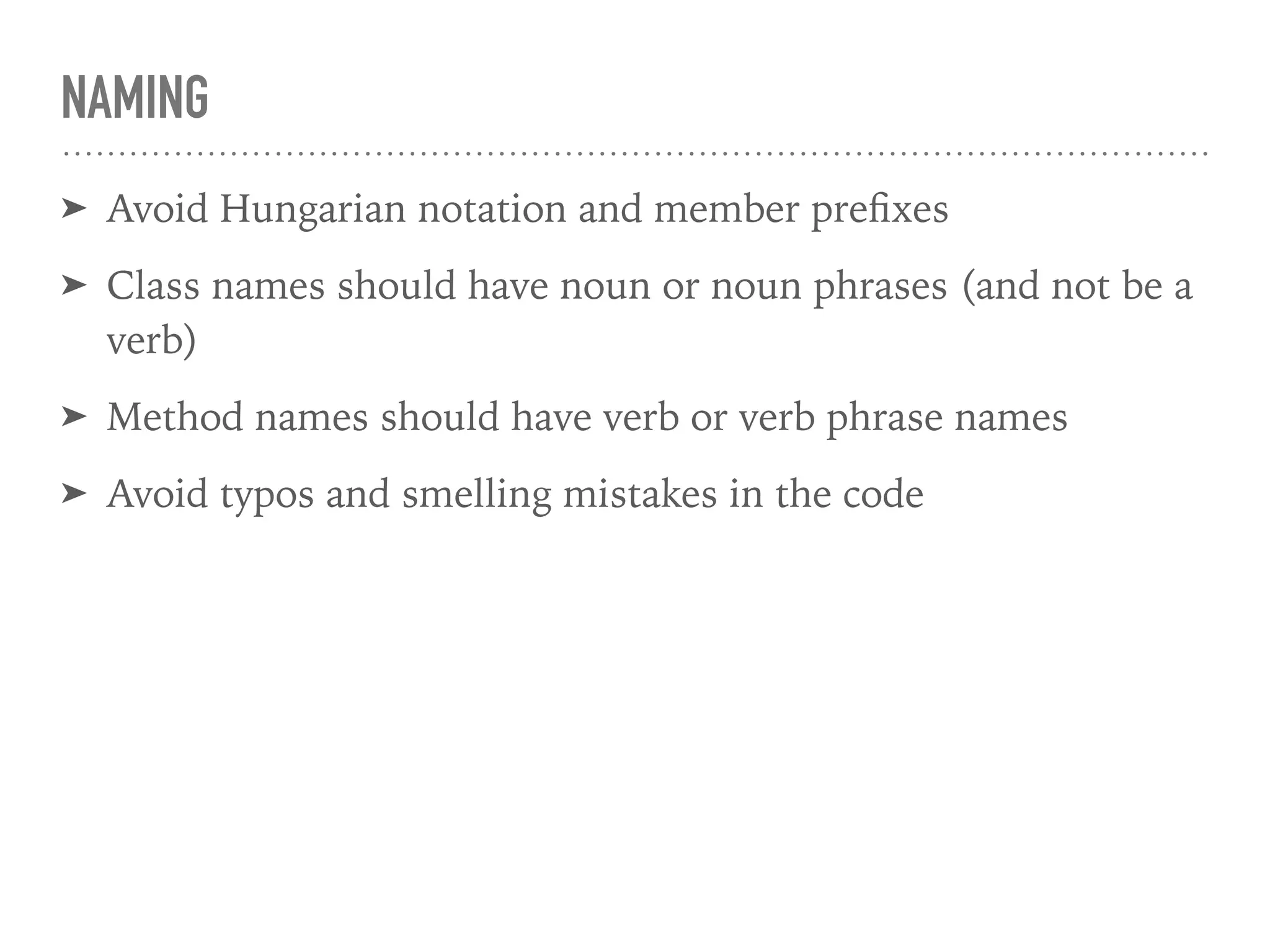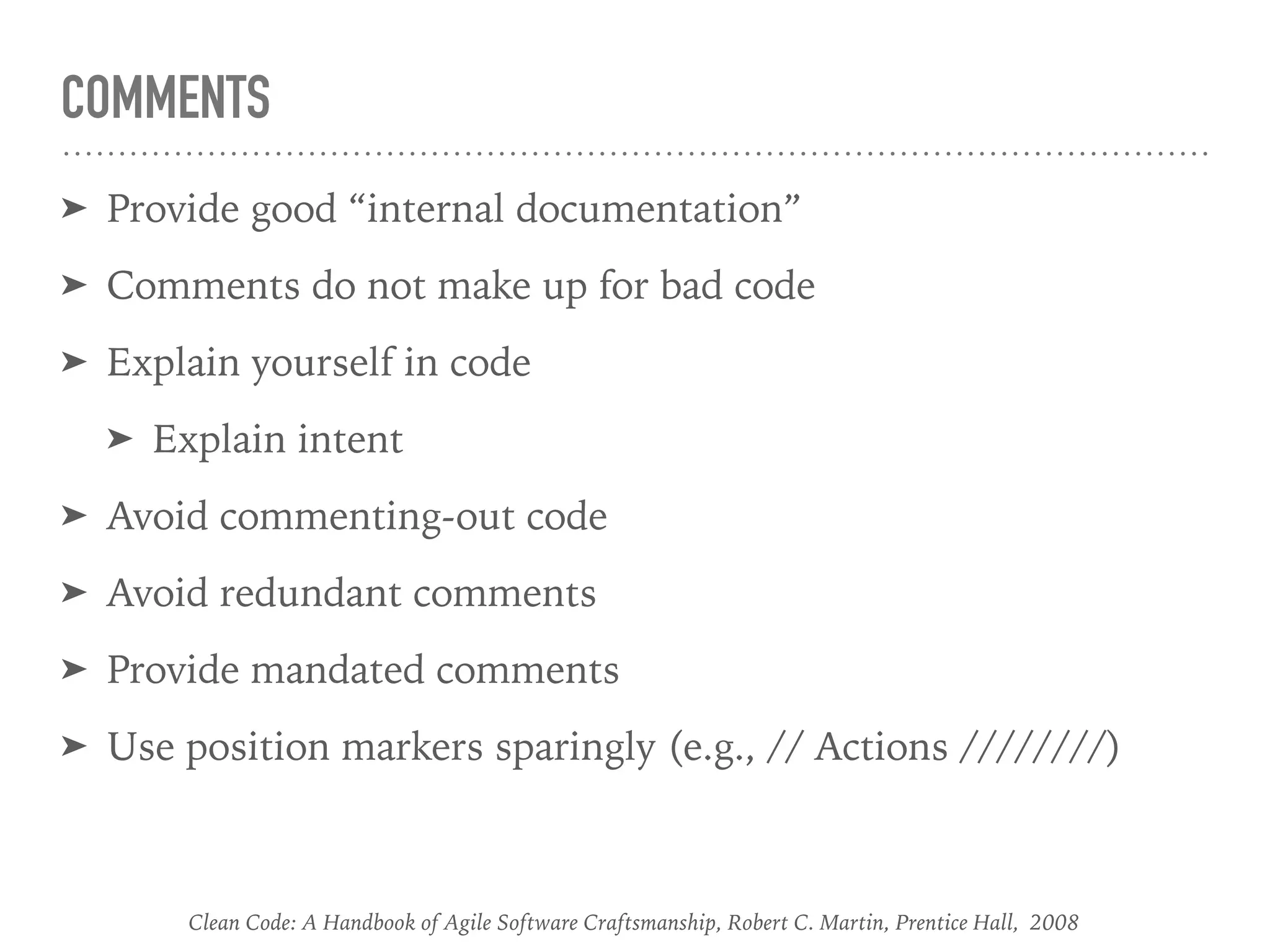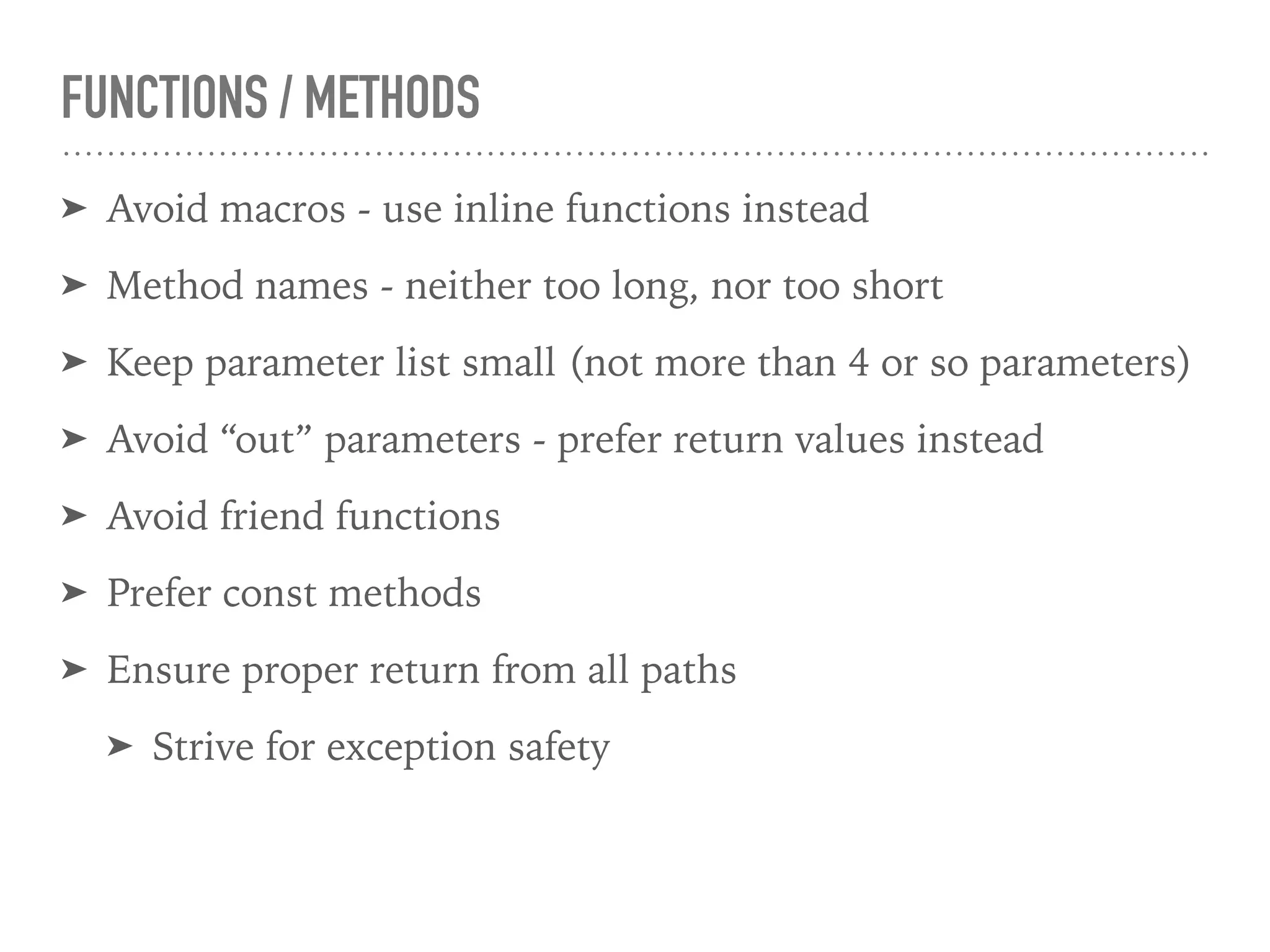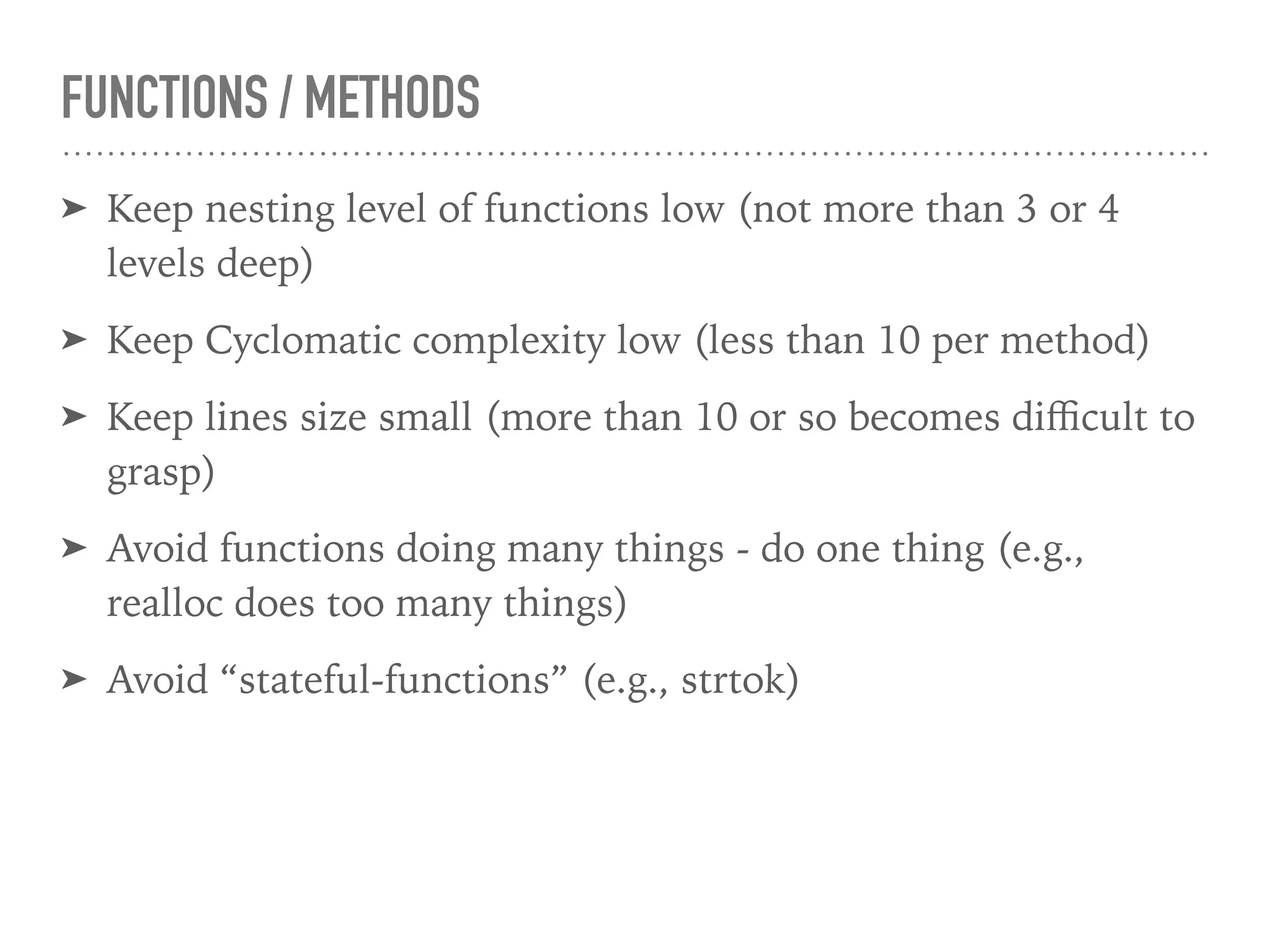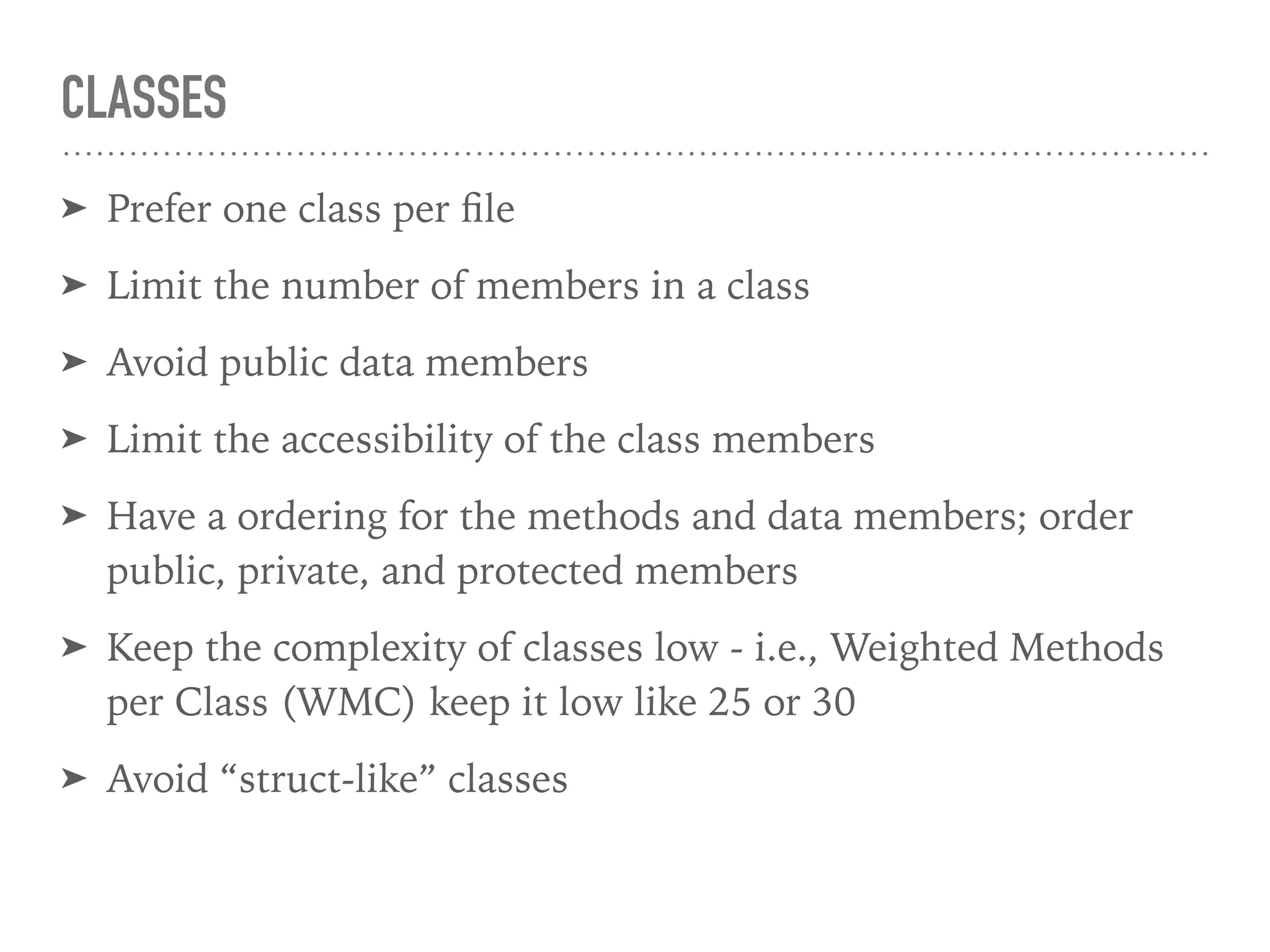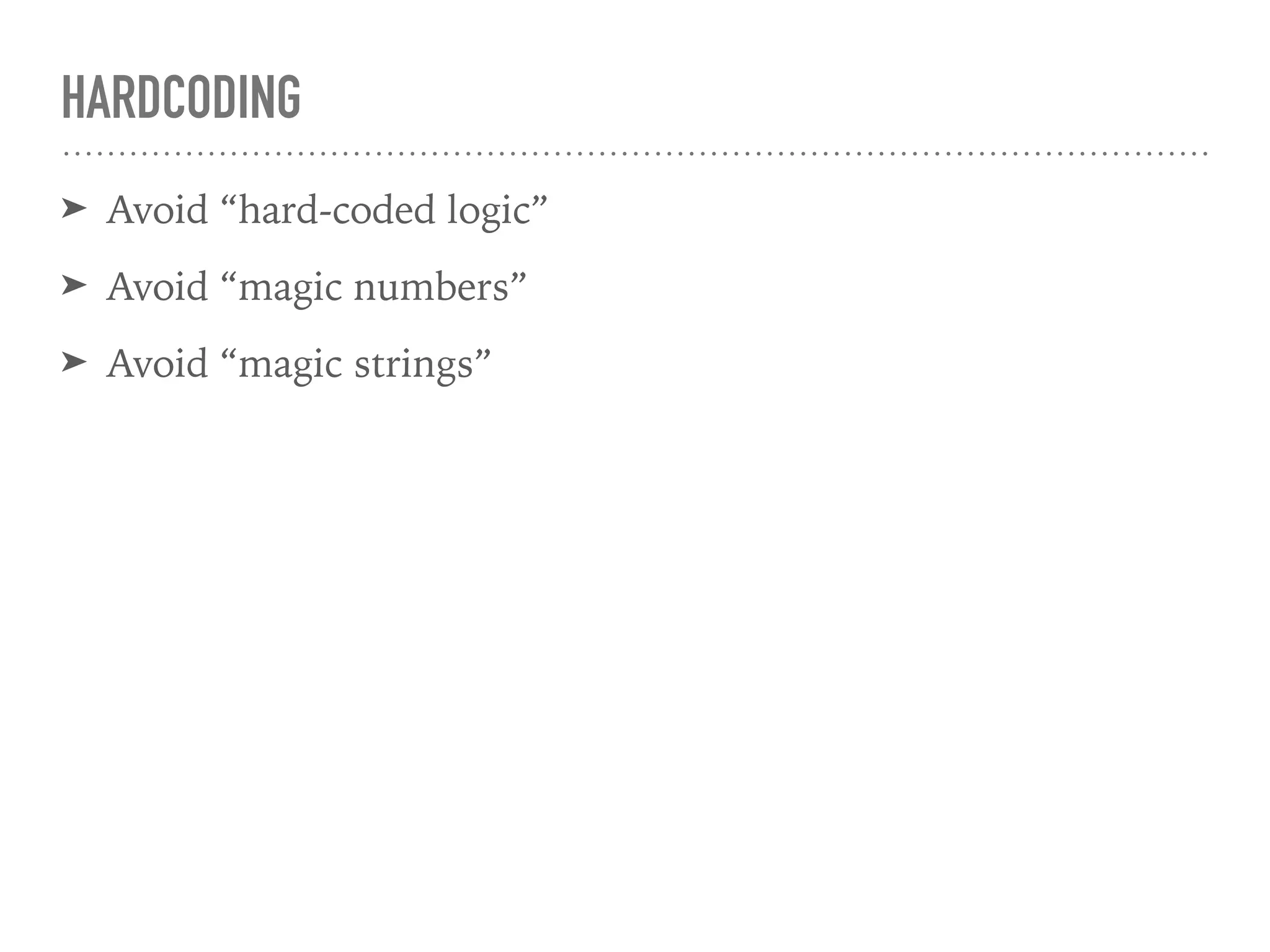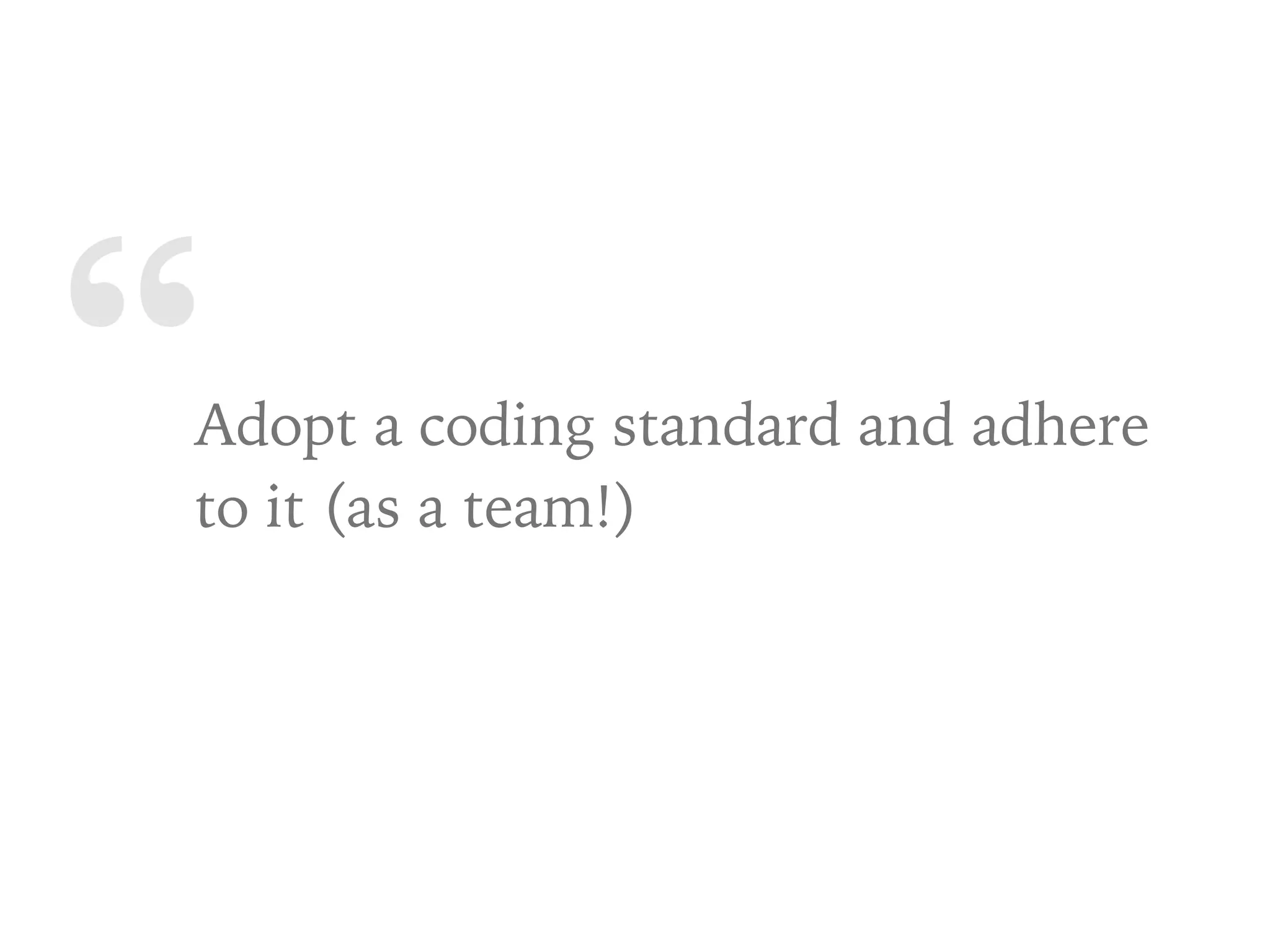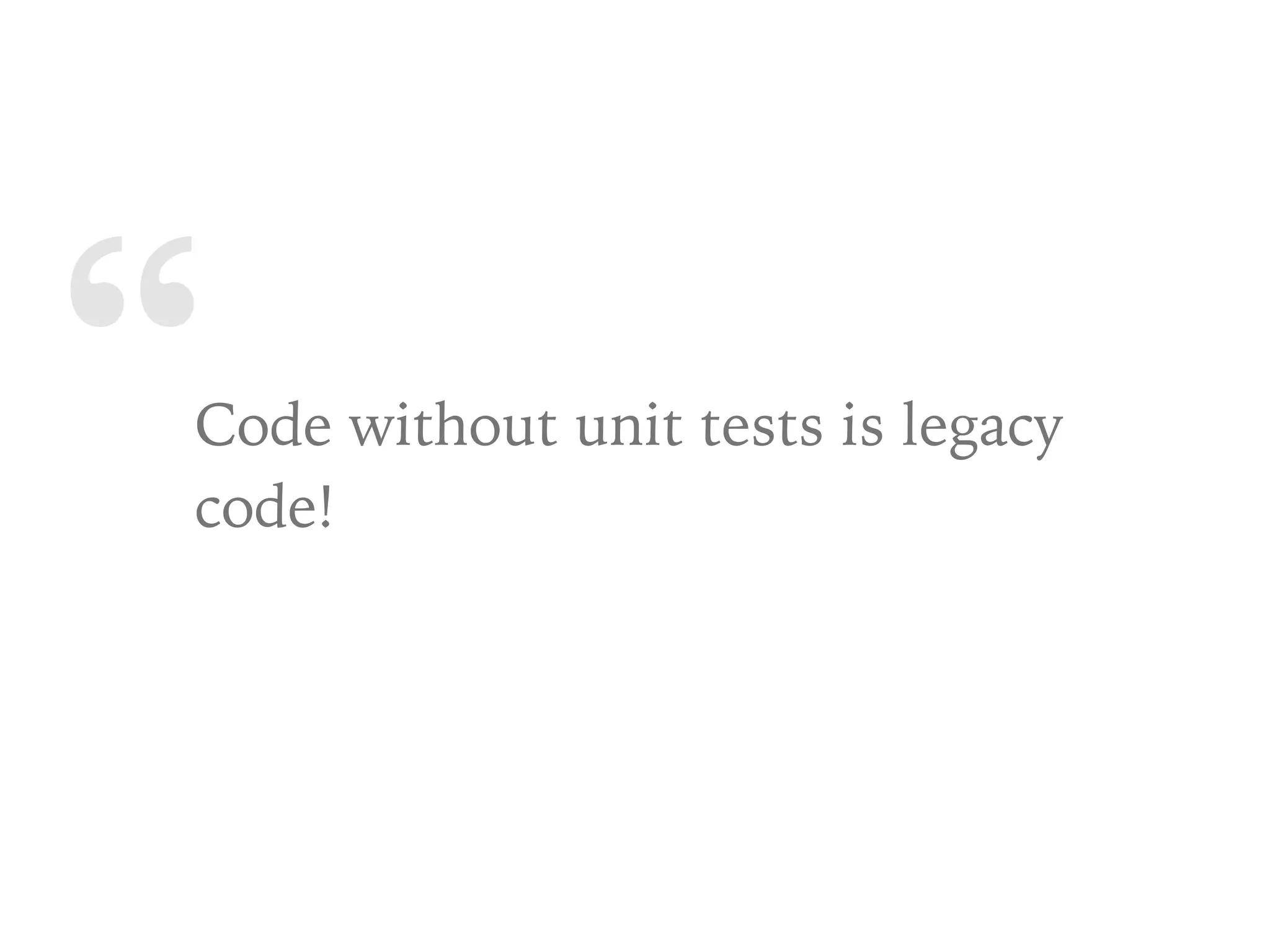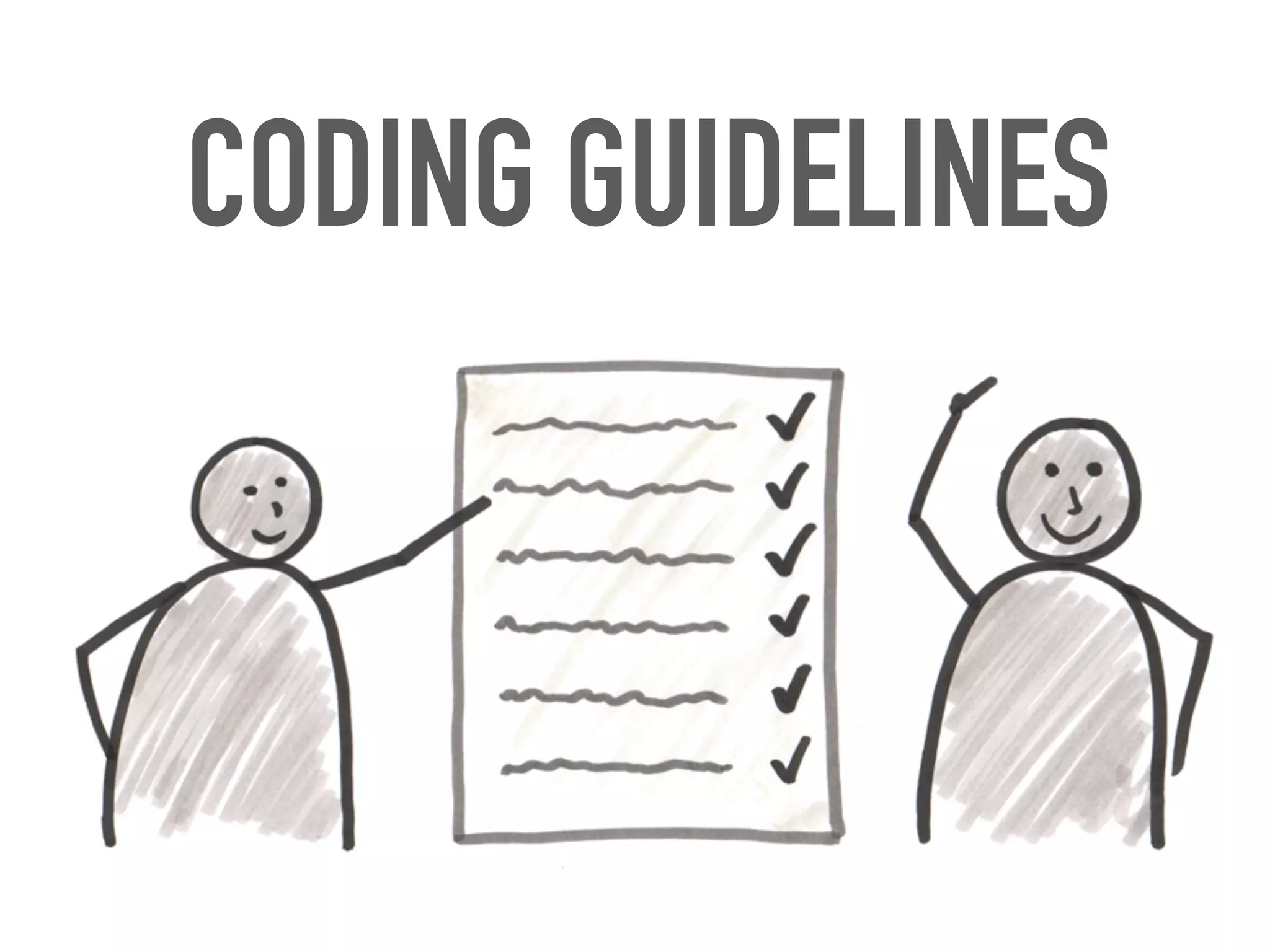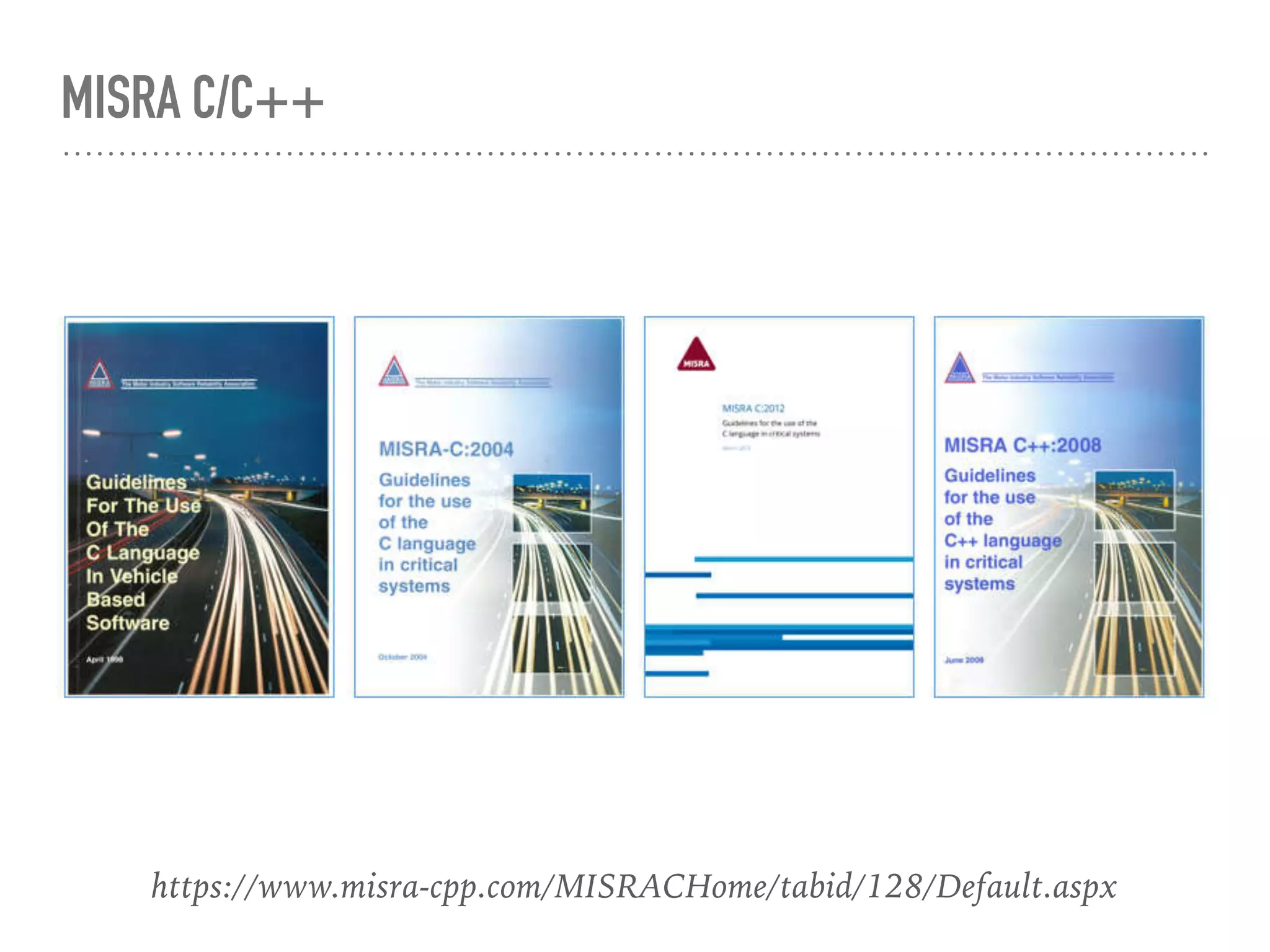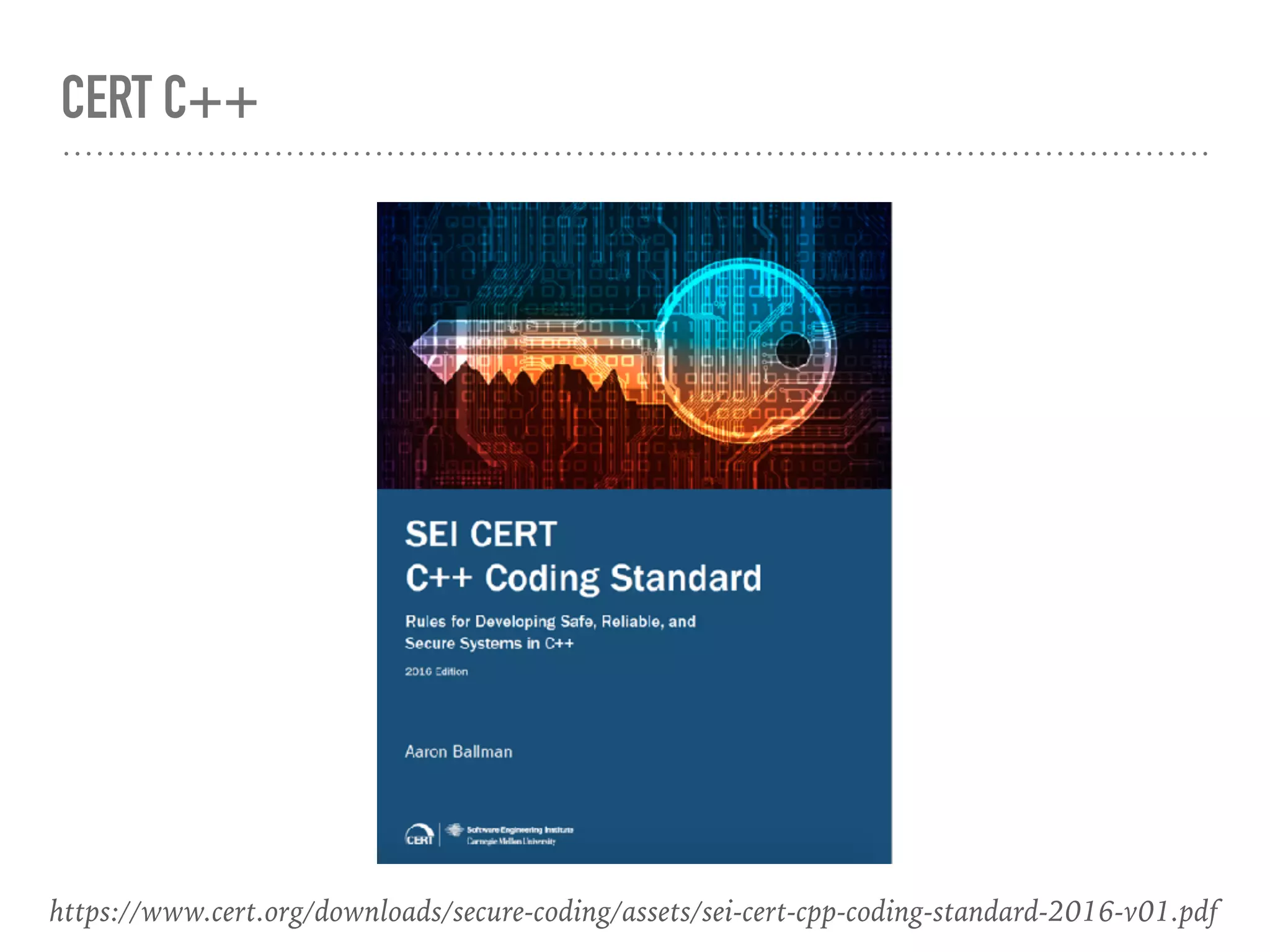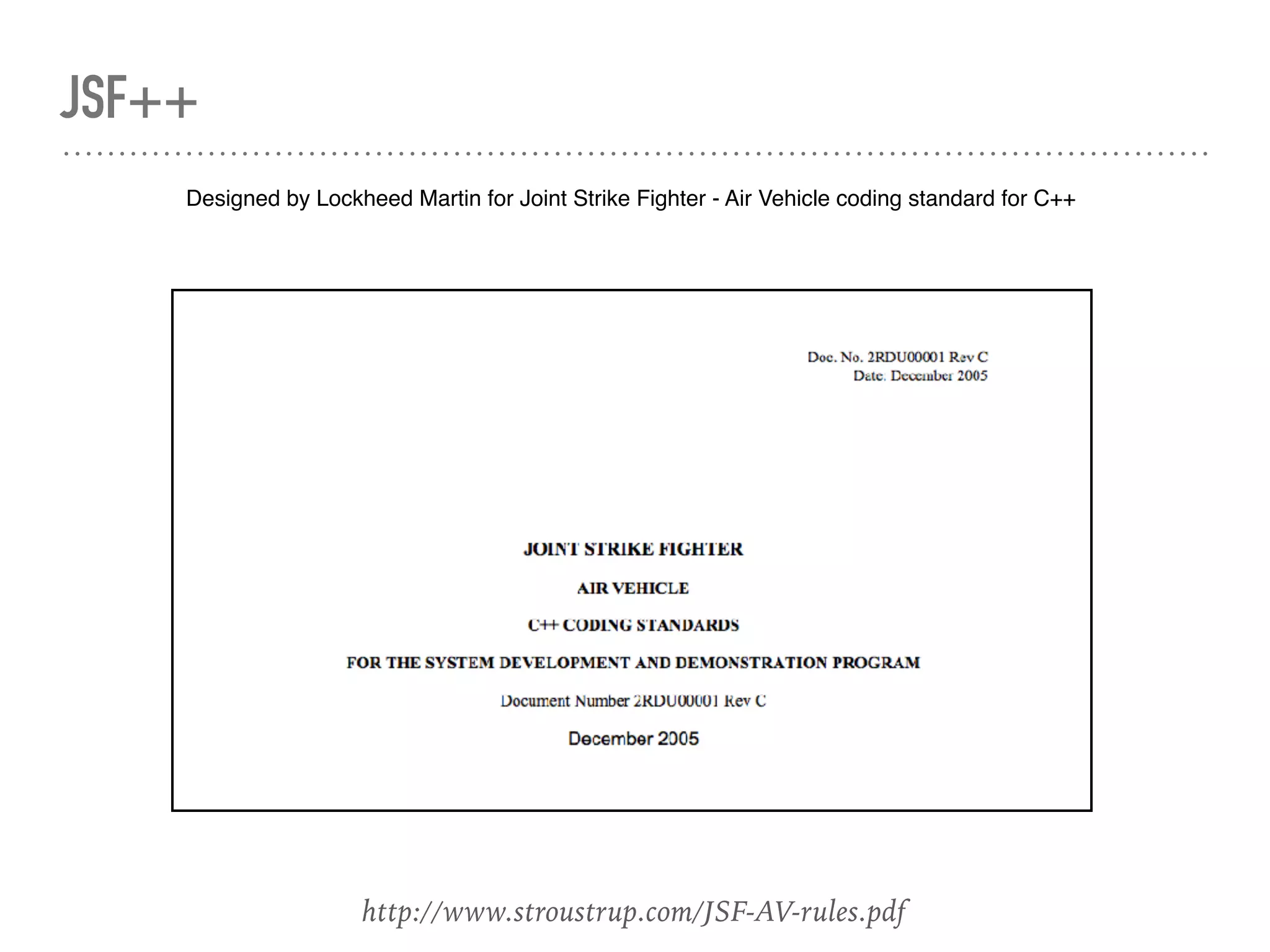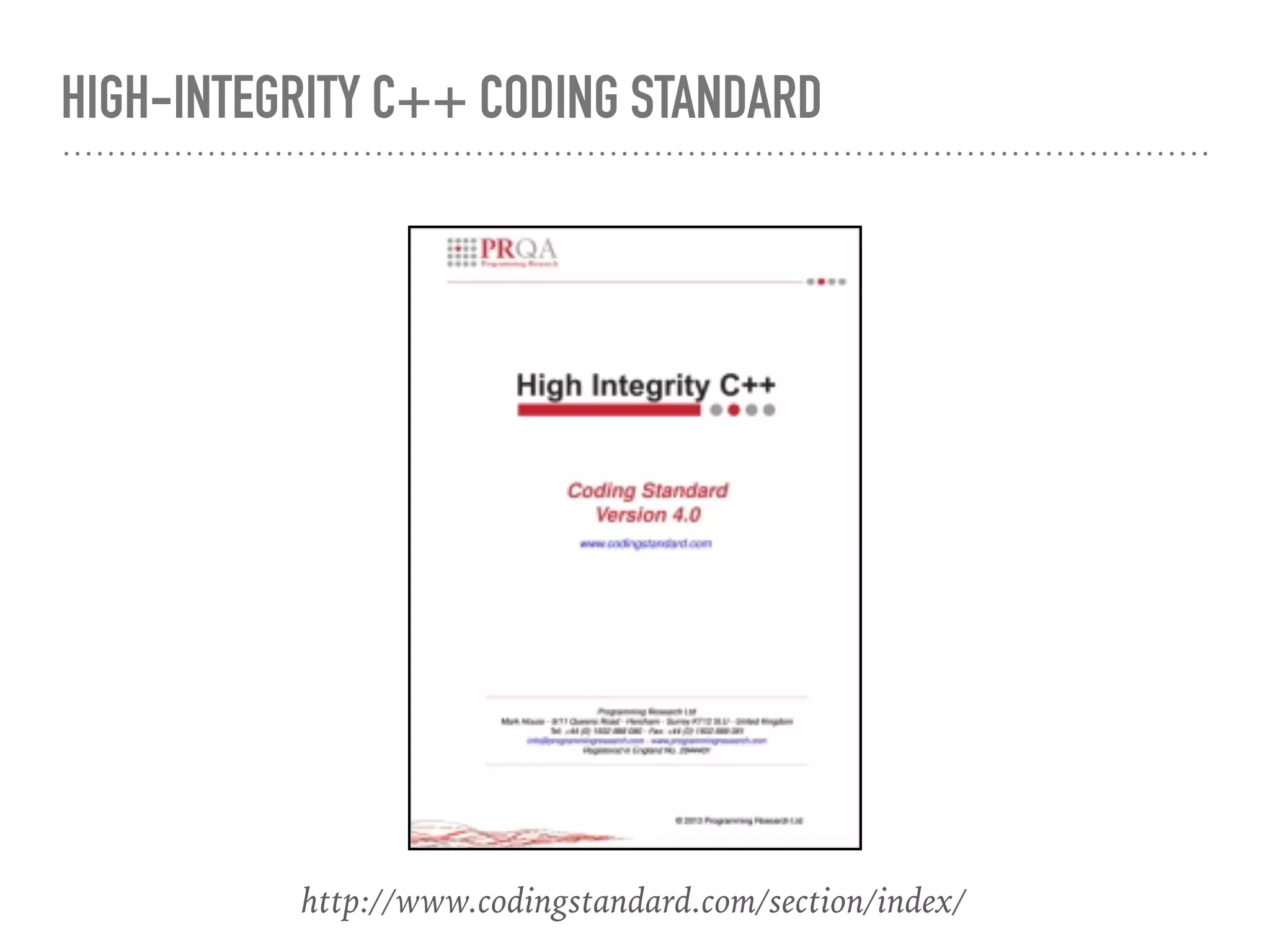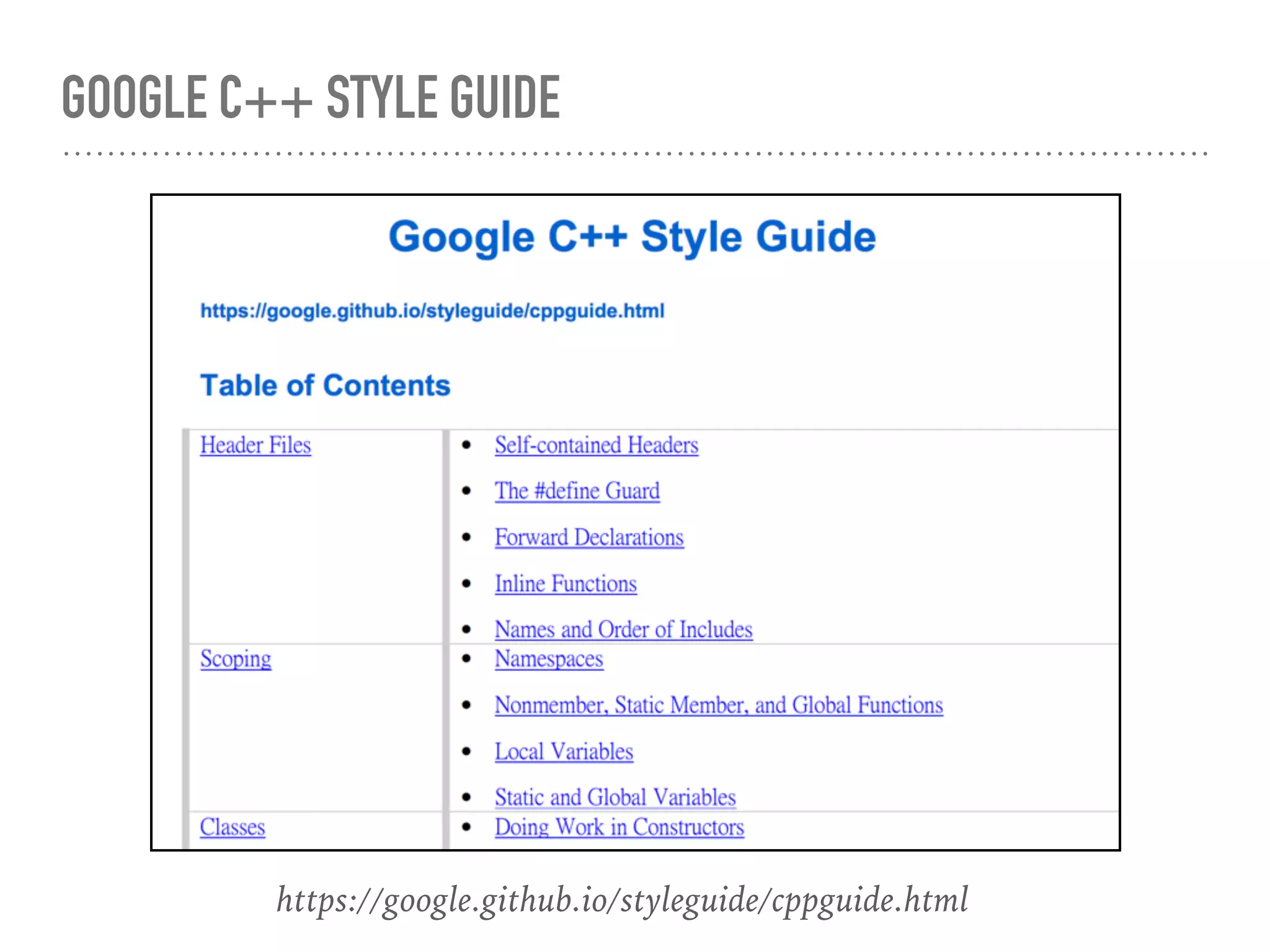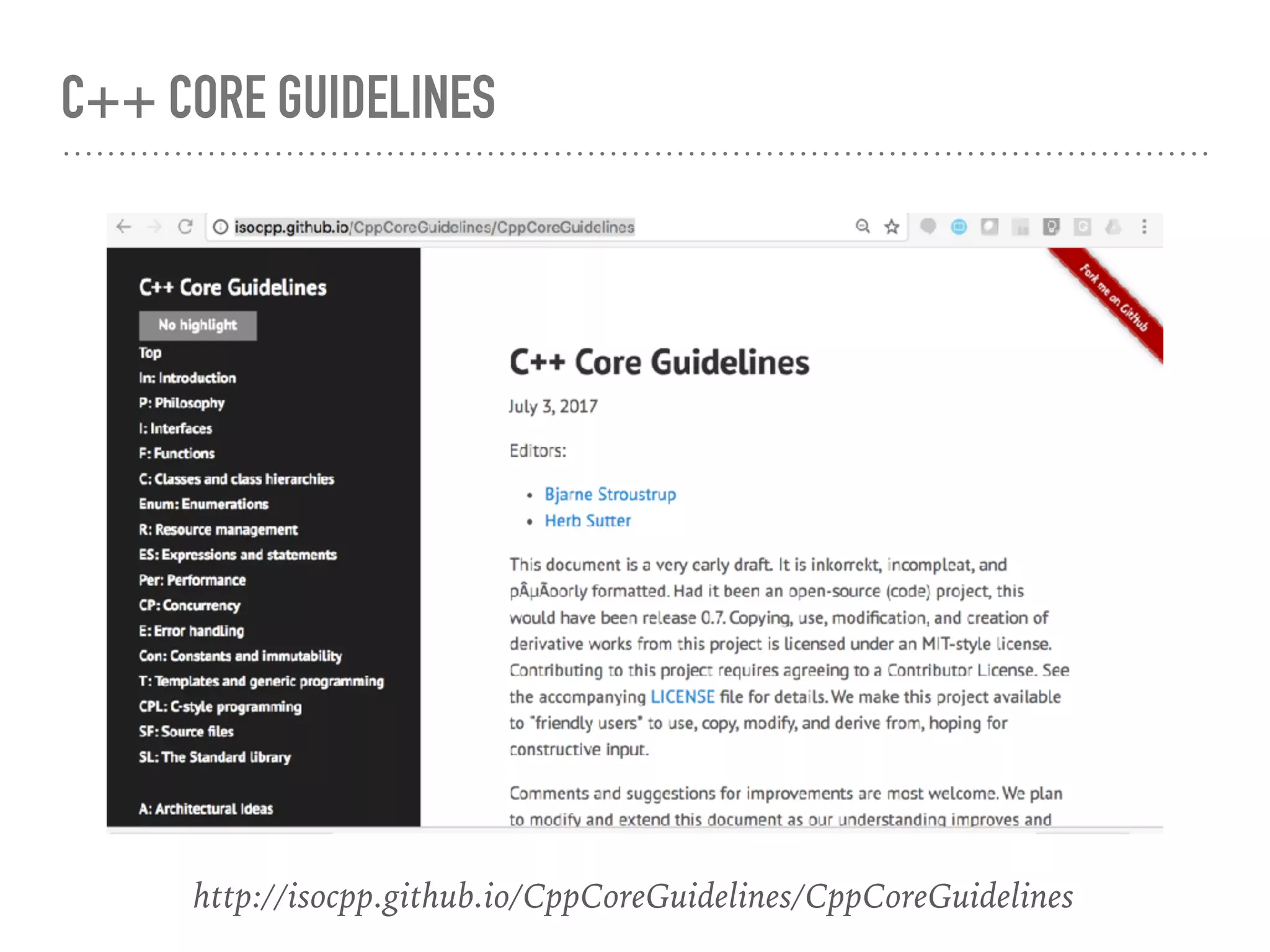The document discusses various techniques for writing clean code, including formatting code consistently, using meaningful names, writing comments to explain intent, keeping functions focused on single tasks, limiting class and method complexity, and avoiding hardcoded values. It emphasizes habits like adhering to coding standards as a team and writing unit tests. Specific techniques mentioned include consistent formatting, searchable names, avoiding comments as a crutch, limiting function parameters and nesting depth, and preferring classes with cohesive responsibilities. The document recommends several coding standards and style guides.
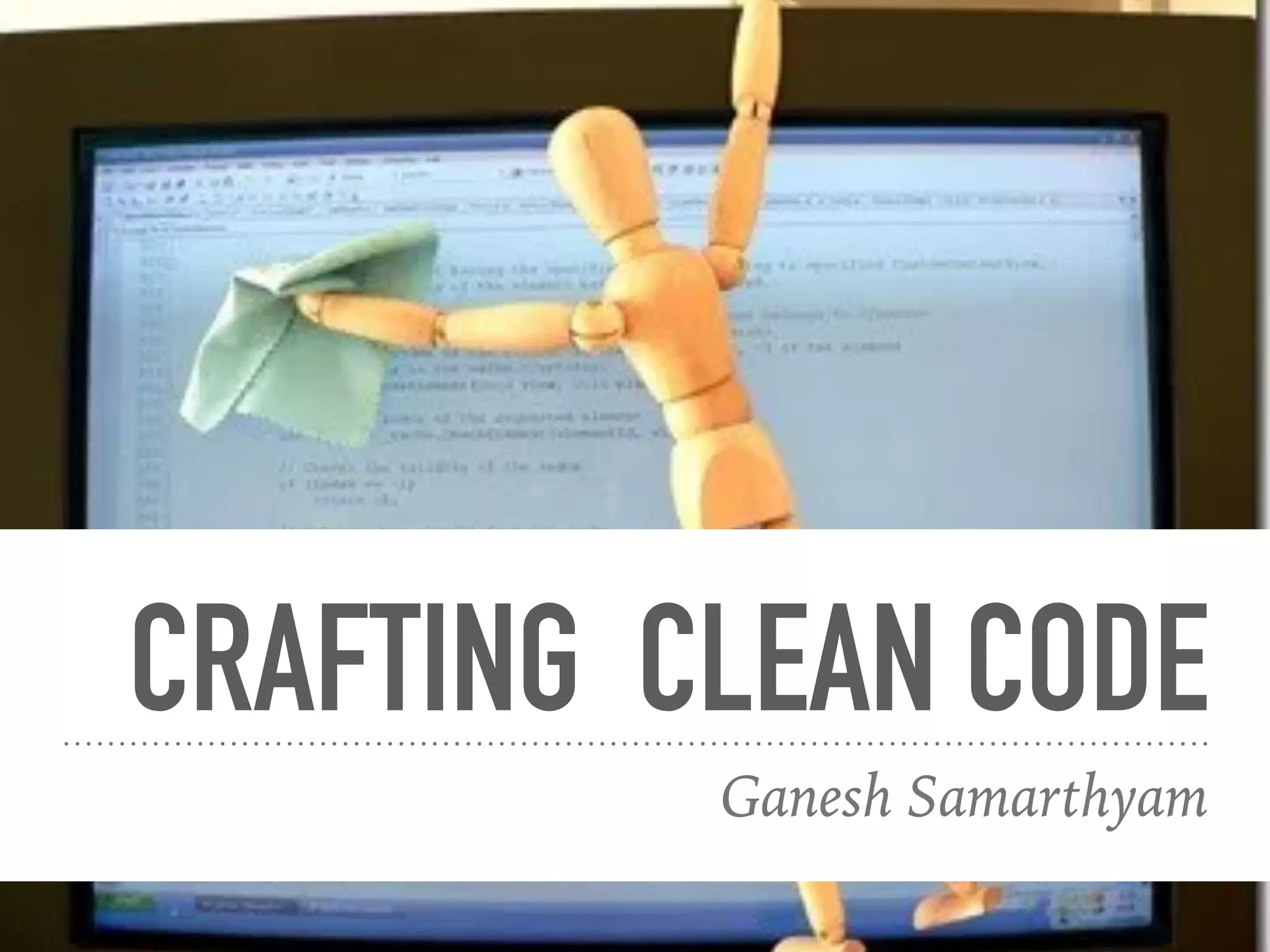

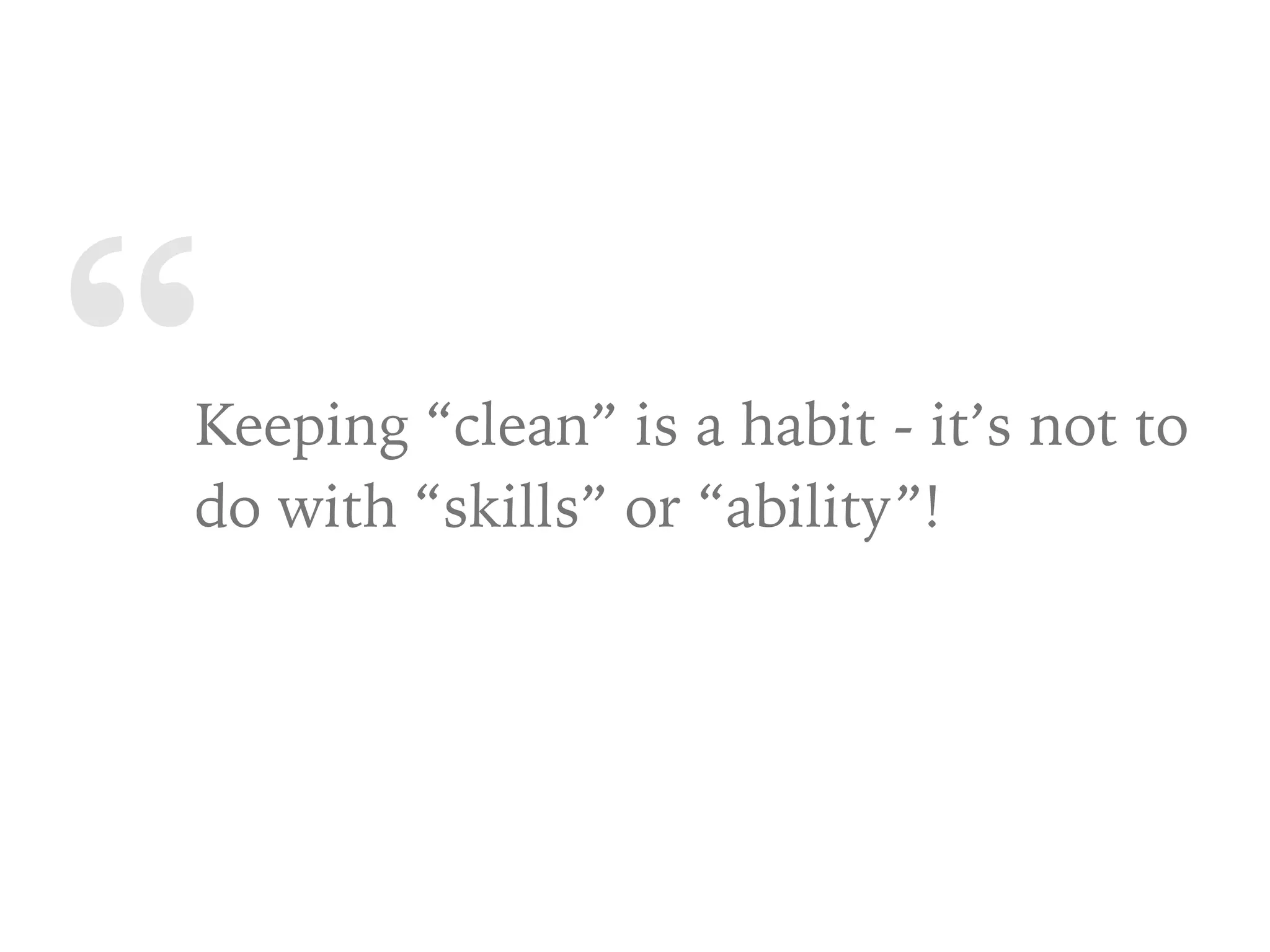

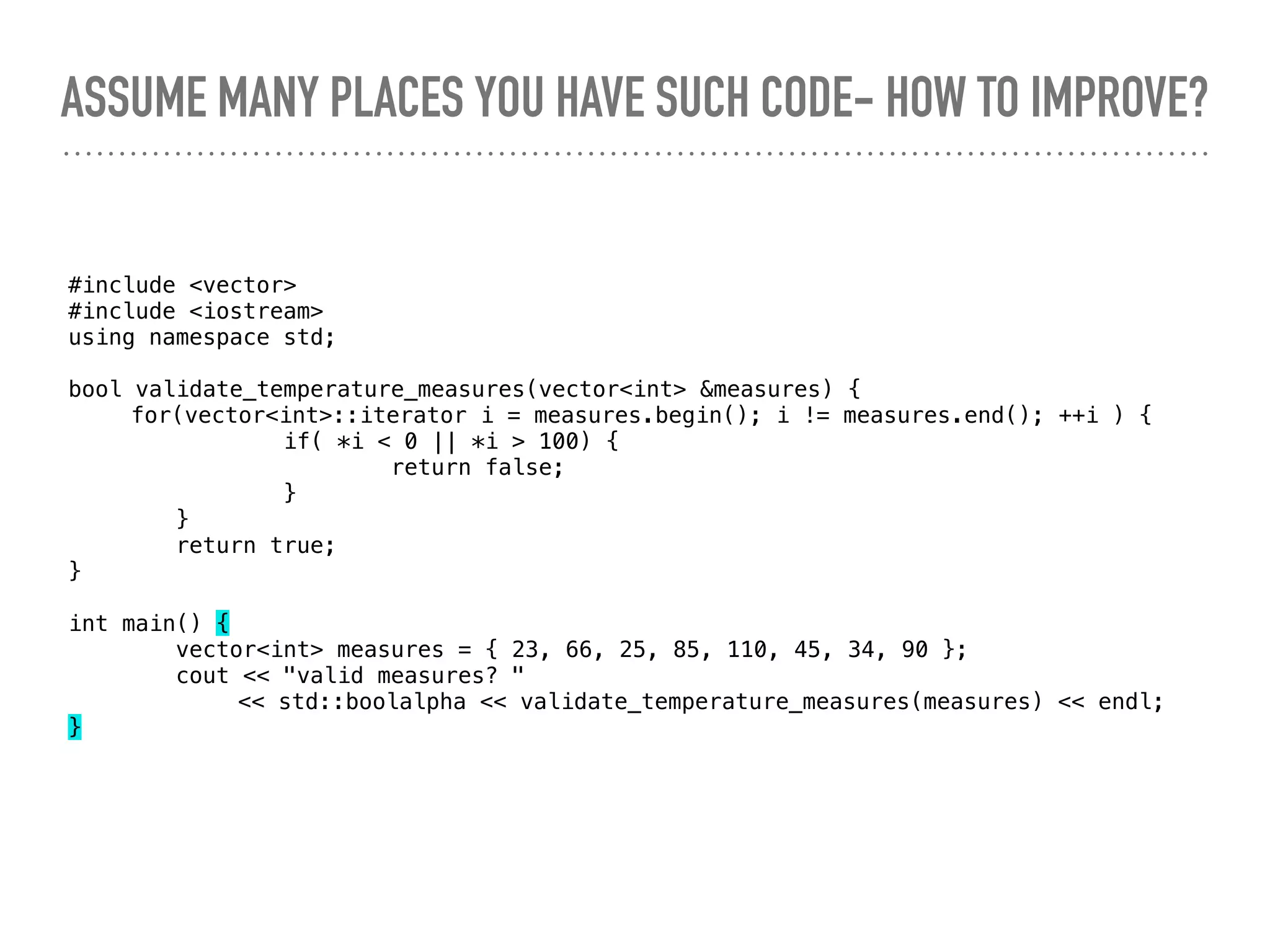
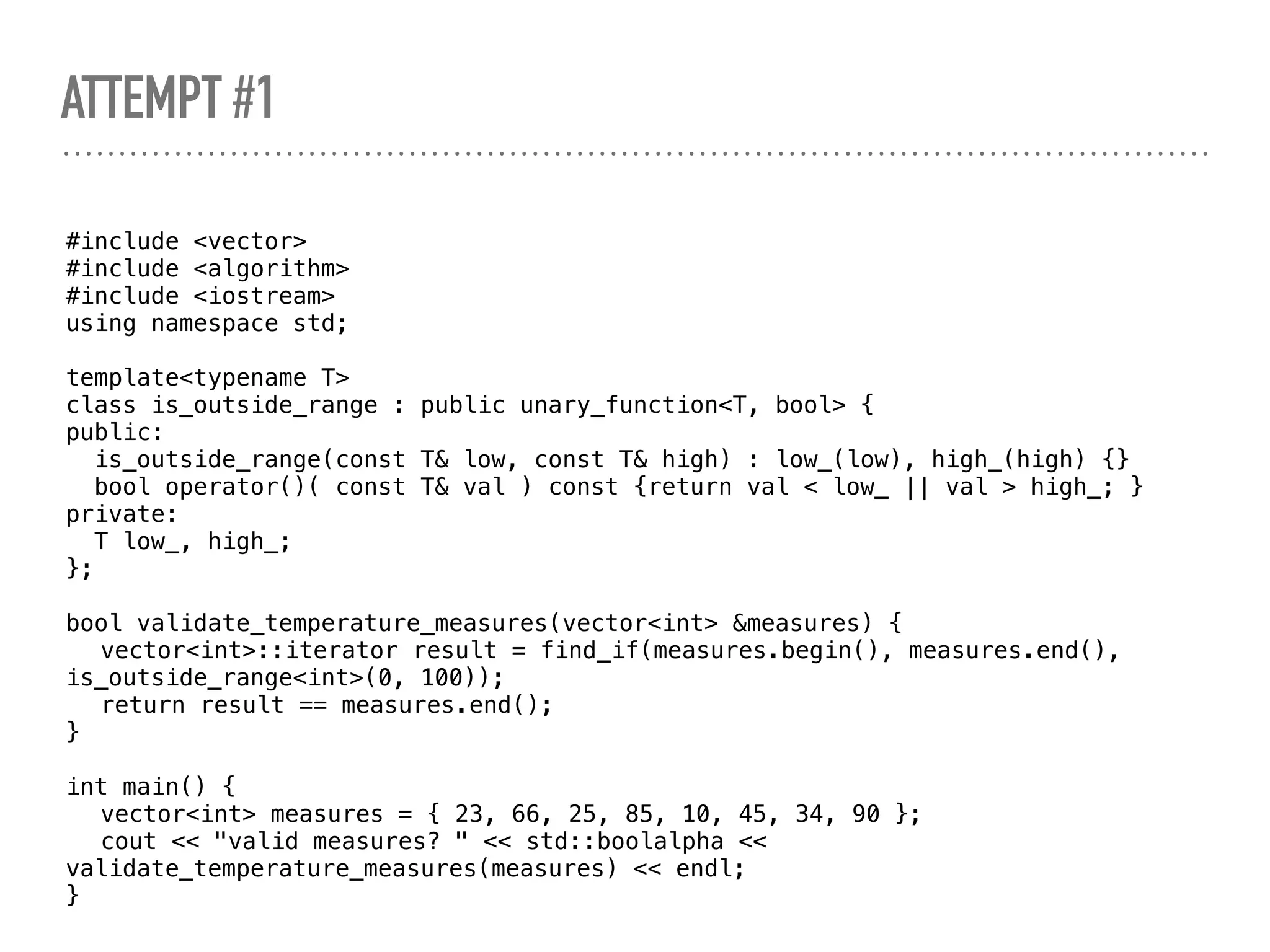
 {
const int low = 0;
const int high = 100;
return (value < low) || (value > high);
};
vector<int>::iterator result = find_if(measures.begin(), measures.end(),
temperature_validator);
return result == measures.end();
}
int main() {
vector<int> measures = { 23, 66, 25, 85, 10, 45, 34, 90 };
cout << "valid measures? " << std::boolalpha <<
validate_temperature_measures(measures) << endl;
}](https://image.slidesharecdn.com/codingguidelinesincpp-170719162405/75/Coding-Guidelines-Crafting-Clean-Code-7-2048.jpg)

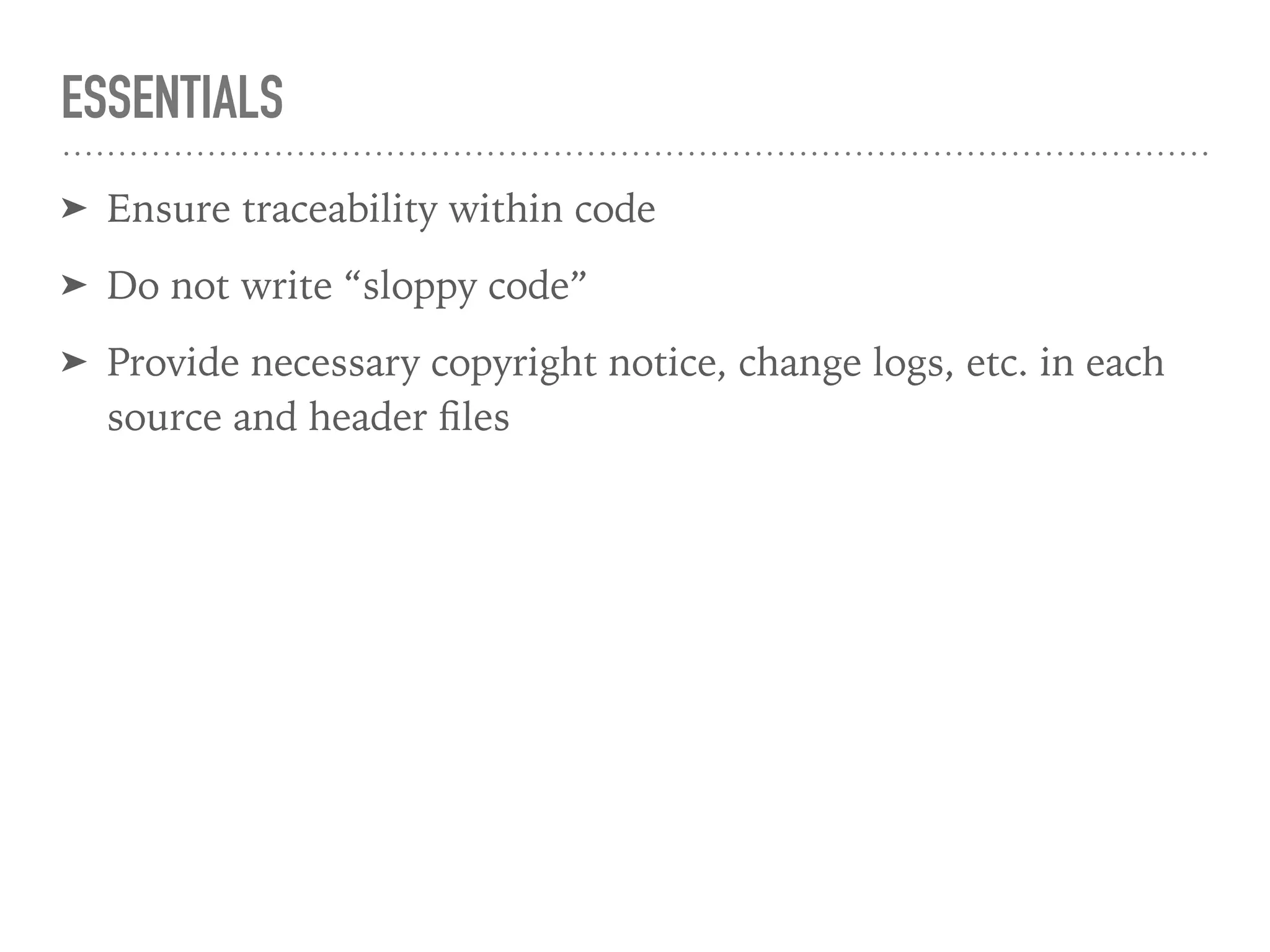
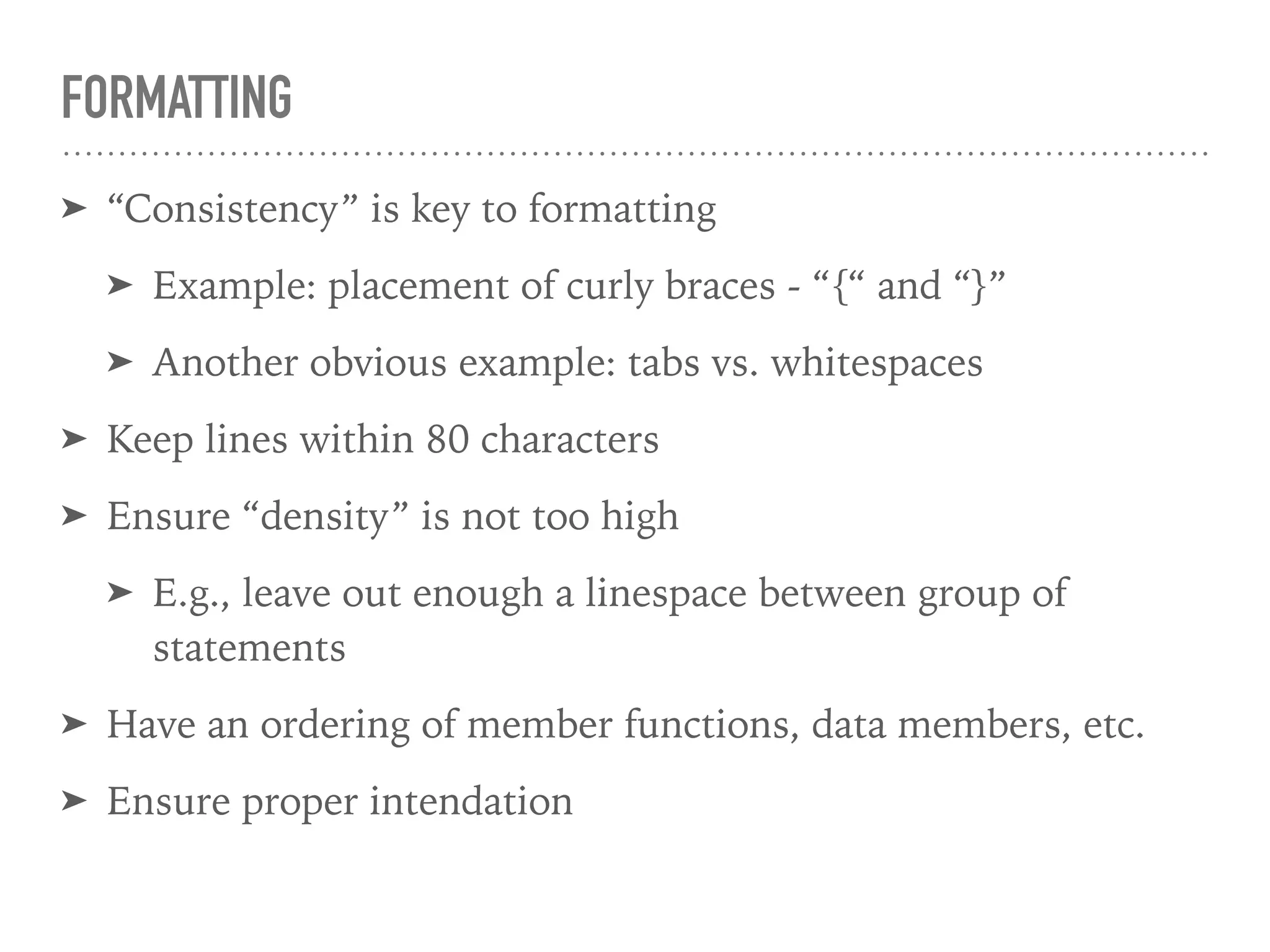
![MEANINGFUL NAMES
➤ Use intention-revealing names
int d; // elapsed time in days
int elapsedTimeInDays;
➤ Use searchable names
for(int j = 0; j < 34; j++)
s+= (t(j)*4)/5;
int realDaysPerIdealDay = 4;
const int WORK_DAYS_PER_WEEK = 5;
int sum = 0;
for(int task; task < NUMBER_OF_TASKS; j++) {
int realTaskDays = taskEstimate[task] * realDaysPerIdealDay;
int realTaskWeeks = (realDays / WORK_DAYS_PER_WEEK);
sum += realTaskWeeks;
}
Clean Code: A Handbook of Agile Software Craftsmanship, Robert C. Martin, Prentice Hall, 2008](https://image.slidesharecdn.com/codingguidelinesincpp-170719162405/75/Coding-Guidelines-Crafting-Clean-Code-11-2048.jpg)
